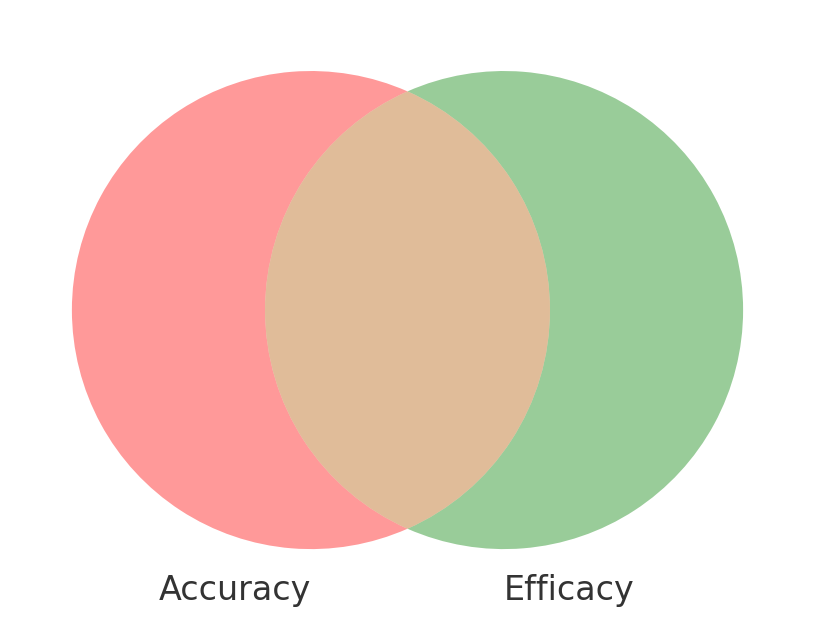Don't Just Manage Reality - Manage Perception
If facts aren't as important as they once were, we need a different way to work.
It’s been said we are entering a post-fact world - and I can’t say I disagree. We have been going down this road for a while now; anti-intellectualism has run rampant in American culture for decades; “expertise” has become devalued in favor of simply being the loudest or most provocative voice in an increasingly extreme digital social environment.
People who you would cross the street in real life to avoid their nonsense rants have some of the most followers on (or outright own) the social platforms we’ve lowered ourselves to use as the standard bearers of information. And everything is personal - if you disagree with someone it isn’t simply a debate; it’s a matter of someone’s very being and essence whether you think they are right or wrong. How do work in an environment like that?
Classic Reagan
There’s a sizable chunk of history nerds on the internet who claim that they can point to Ronald Reagan’s eight years in the Oval Office and tie nearly every poor economic outcome today to something his administration pushed for. While this may be extreme, it’s not as far off the mark as Reagan lovers would have you believe.
And one of the victims of the Reagan administration was the Fairness Doctrine. It survived Nixon, it survived Supreme Court challenges, but it could not survive Reagan. We see the rise of cable news and the echo chamber in the downfall of the Fairness Doctrine.
The Fairness Doctrine was not the “both sides-ism” that we are victim to today from our major media publishers (more on this later.) It was more in place to ensure that major topics were covered from different perspectives and that people who felt attacked had a chance to respond (in fact, the major Supreme Court case about the Fairness Doctrine - Red Lion Broadcasting v. FCC - unanimously held that the doctrine aligned with First Amendment freedoms because it allowed rebuttals from those attacked on the airwaves.)
Without the Fairness Doctrine, talking heads can spew outright lies, knowing that they will suffer next to no consequences or pesky fact-checking. If you’ve had the unfortunate experience of watching your television for anything other than streaming escapism shows you’ve been victim to this kind of content masquerading as news.
The Rise of Both-Sides-ism and the Marketplace of Ideas
On the flip side of the downfall of the Fairness Doctrine, we have seen the pendulum swing uncontrollably to the other side into a laughable game of “both sides-ism.” This occurs when mainstream news programs voluntarily give ample airtime or inkspace to people that, say, deny that the 2020 election was legitimate - and allow them to continue to espouse the lie that it was stolen. All in the name of avoiding being called biased.
This leads to allowing assertions like stolen federal elections - which in any other timeline would be justifiably laughed out of any room with a shred of respectability - to become mainstream. So mainstream, in fact, that the sitting president, vice president, and Speaker of the House all have been on record as saying Biden’s 2020 win was not legitimate.
This is simply one of many examples - take a look through RFK Jr.’s statements about vaccines and autism or HIV not causing AIDS or the 2004 election being stolen from John Kerry and you see a deeply troubled man in need of severe psychological help. In today’s society, however, you’re looking at the nominee to run America’s Health and Human Services.
We need to be realistic: not all ideas are created equal. Every viewpoint does not deserve the same amount of publication (unless on a common carrier telecom.) They can be published, certainly, and let the masses decide. But there are some axioms we should be able to agree upon, which at this stage in society we inexplicably can’t.
The rise of the algorithm ruins the marketplace of ideas, and we need a new solution for the “free trade of ideas” because the platforms are not trading the ideas freely - they are weighting them based on engagement.
The First Amendment is wide-ranging and enjoys a ton of leeway despite centuries of challenges to it. And this should not change - one of the uniquely American things in a globalized world is the wide spectrum of things someone in this country is allowed to say without official retribution from the government. We can argue how true this is in practice, but like many freedoms we have in this country we at least aspire to it.
I Thought This Newsletter Was Done with Politics
The perception vs. reality discord feels like it only sit firmly in the political realm - and to be fair, this is where it is most audacious - but it permeates through every aspect of our lives. And one where it can be quite present is in the workplace.
Take the RTO debate, for example. The argument that workers are more productive in the office than outside of it has been categorically proven false. Study after study shows that commuting time is spent - at least in part - on actual productive work. Financial outcomes for RTO-mandated corporations and those who treat their charges like adults are the same.
But it still needs to be dealt with. The arguments against it still need to be made, even with all of the evidence out there. The reality is RTO is meaningless from an outcomes perspective. The perception is that it drives “creative combustion” and some magical productivity multiplier, and that is actually dictating a lot of large companies’ moves right now.

Being right simply is not enough - you need to understand and manage people’s perceptions. I distinctly remember a meeting at work from a while ago during which I was shot down on a point I’d made about a subject in which I am indisputably an expert. I could not fall back on the truth - that was what was disputed, even though you can’t dispute a fact (but I’m not bitter) - so I had to shift into perception-changing mode.
I could have simply reasserted myself more firmly, reiterated what the truth was, “won” the argument and come off as an asshole (and I’d be lying if I said I’ve never done this and gotten feedback for it before.) Instead, I swallowed my mammoth dose of pride, let the other person feel right, and diplomatically ensured everyone was aligned as to what the reality was in the follow-up notes to the meeting without pointing out the other party’s severe misunderstanding. Even though I had the truth on my side, in a post-truth world perception also needs to be managed.
Build Consensus, Not Conflict
Years ago when I rejoined Digitas, one of my favorite bosses and mentors was leaving and I asked if we could grab drinks before she did. She’s one of the smartest people I know, and I also know how meetings can be in agencies, so I asked her how she deals with situations where she knows she is right, but someone else is aggressively wrong.
She told me that being a leader isn’t about being right - it’s about reaching consensus. Being good at one’s job doesn’t always align with being right, it tends to more closely align with being effective. As much as I find proverbs in posts like these beyond cliche, the one oft-attributed simply to “Africa” fits quite well here: If you want to go fast, go alone. If you want to go far, go together.
You hope to work in an environment where the overlap of accuracy has a lot of overlap with efficacy, but there will undoubtedly be times when the two are at odds. When that occurs, accept it as an unfortunate reality of life in a post-fact world and use your energy not for righteous indignation (as satisfying as it may be in the moment) but to understand and manage the perceptions of others. Just don’t lose sight of the truth as you do so.
Grab Bag Section
WTF Chiefs: The world owes the Patriots and their fanbase an apology. Tom Brady and Gisele Bunchedon were never as annoying as Travis Kelce and Taylor Swift. Patrick Mahomes and his entire entourage make the cast of Entourage seem likable. Bill Belichick is a jerk, sure, but his drug dealer kid never maimed a 5-year-old girl, took a lenient plea deal, and got his sentence commuted by the governor of Missouri.
So now I have to do something pretty unforgivable for Super Bowl Sunday this year: root for the Philadelphia Eagles to avoid living through a Kansas City Chiefs three-peat. I have enough self-awareness as a Boston sports fan to understand we’re not always fielding the most likable team. But truly there are few stories I read about the Chiefs without thinking “Man, at least we weren’t that bad.” Did I mention I’m rooting for the Eagles? I am livid.
Album of the Week: This newsletter is a big fan of rap that has an emotional storytelling aspect to it. Something about the juxtaposition of an artist being vulnerable in a genre filled with machismo and braggadocio just works. And while a lot of his commercial singles may not fit the bill, Kevin Gates is actually one of these artists and his mixtape By Any Means is filled with these kinds of tracks.
Yes, this mixtape has your typical rap tracks like “Bet I’m On It,” “Stop Lyin,” and “Get Up On My Level” that slap, but it has tracks that are surprisingly emotive like “Movie,” “Wish I Had It” and the album standout “Posed to Be In Love.” I also get a kick out of this album because my wife hates it for two reasons: she is fixated on Kevin Gate’s love life and there was a period of time when she could not ask me what I wanted from the grocery store without me putting on a throaty Baton Rouge accent and telling her “sandwich bags and arm and hammer.” The third reason will be me putting this out there for those who got this far in the post.
Quote of the Week: “The Party told you to reject the evidence of your eyes and ears. It was their final, most essential command.” - George Orwell, 1984









